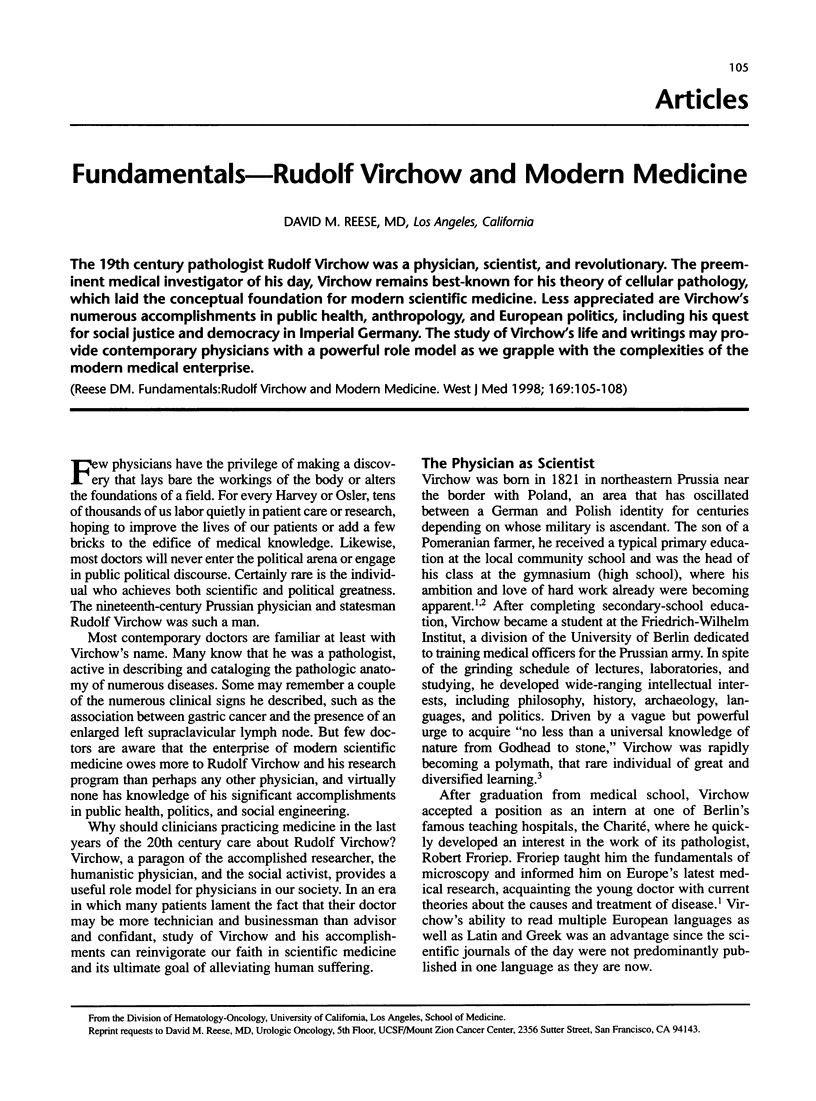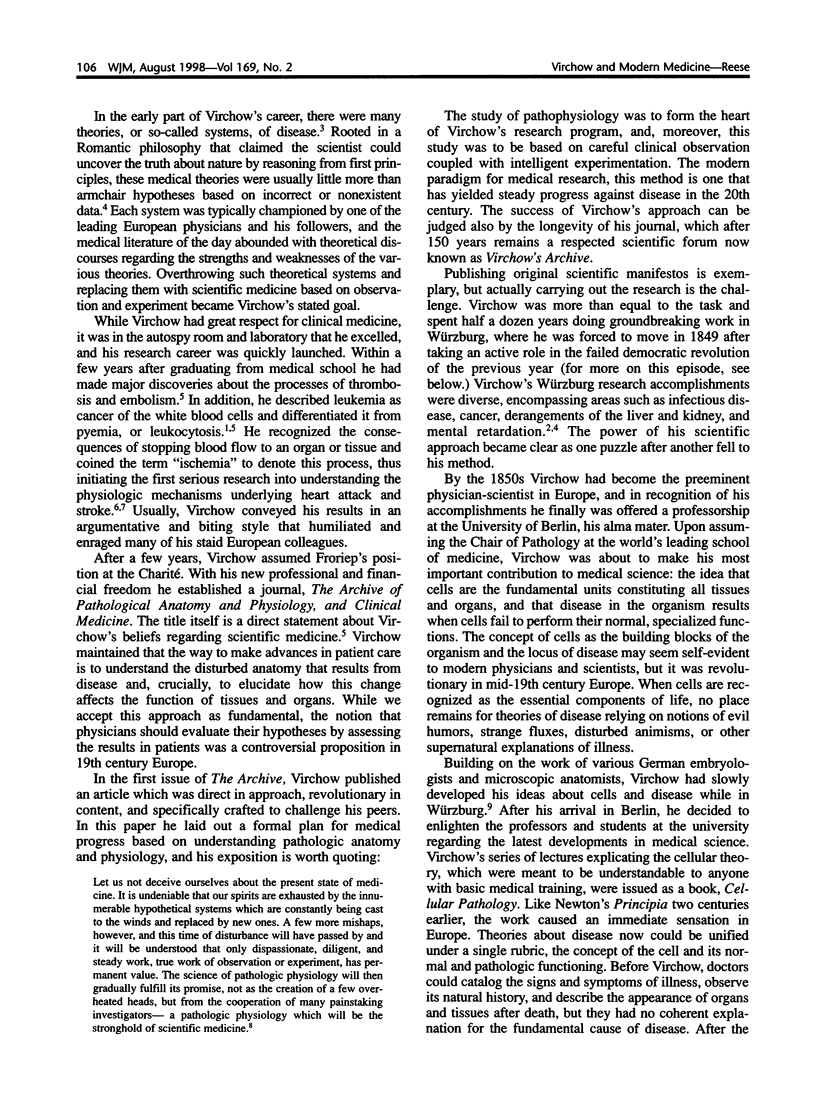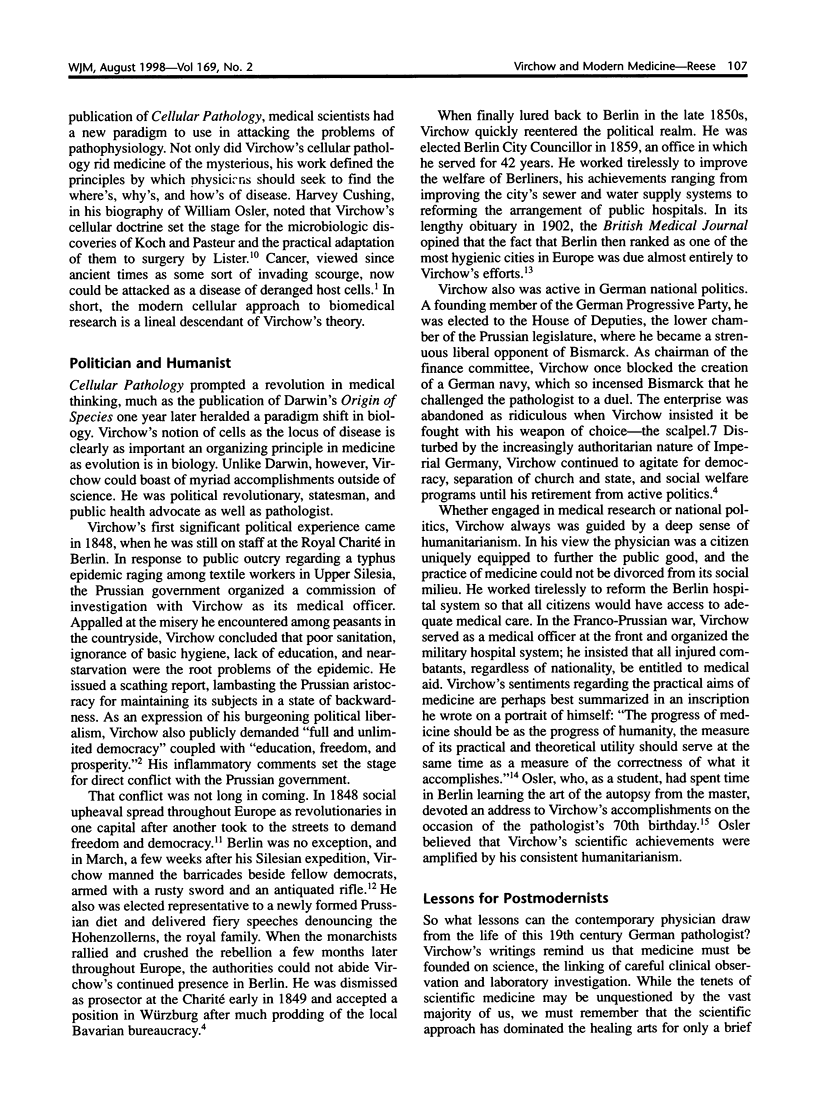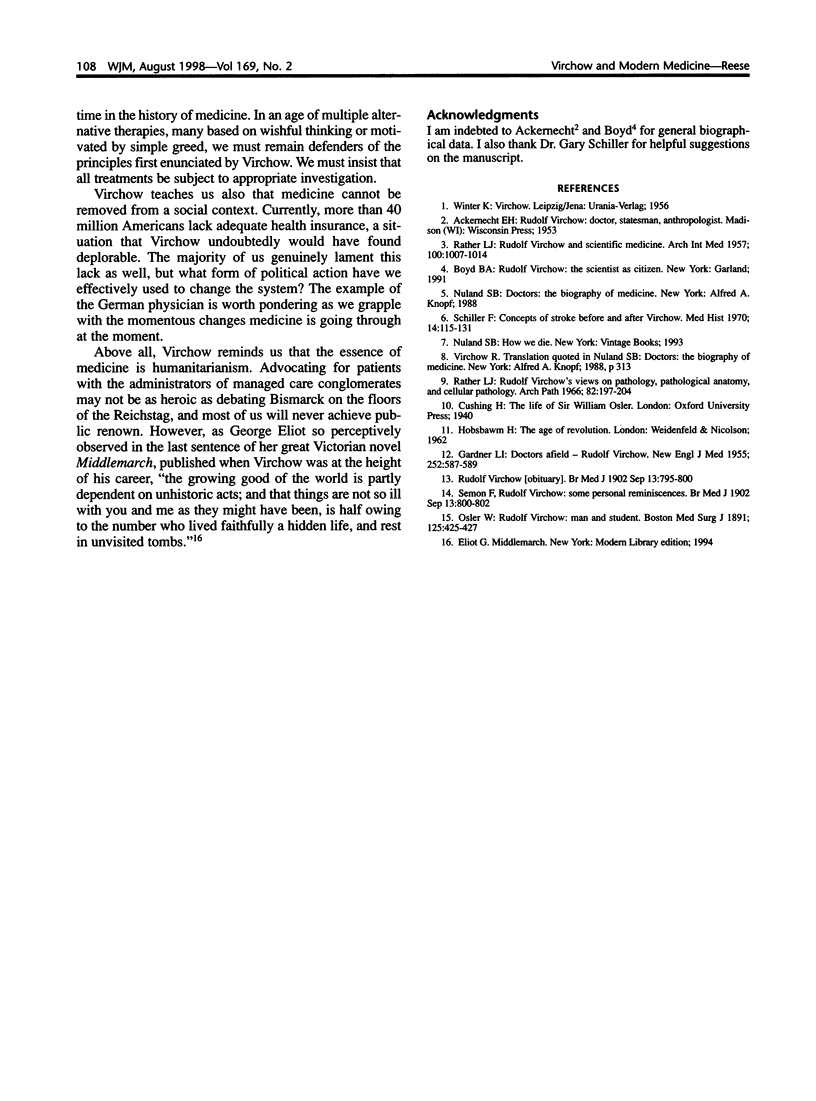Abstract
The 19th century pathologist Rudolf Virchow was a physician, scientist, and revolutionary. The preeminent medical investigator of his day, Virchow remains best-known for his theory of cellular pathology, which laid the conceptual foundation for modern scientific medicine. Less appreciated are Virchow's numerous accomplishments in public health, anthropology, and European politics, including his quest for social justice and democracy in Imperial Germany. The study of Virchow's life and writings may provide contemporary physicians with a powerful role model as we grapple with the complexities of the modern medical enterprise.
Full text
PDF



Selected References
These references are in PubMed. This may not be the complete list of references from this article.
- GARDNER L. I. Doctors afield; Rudolf Virchow. N Engl J Med. 1955 Apr 7;252(14):587–589. doi: 10.1056/NEJM195504072521407. [DOI] [PubMed] [Google Scholar]
- RATHER L. J. Rudolph Virchow and scientific medicine. AMA Arch Intern Med. 1957 Dec;100(6):1007–1014. doi: 10.1001/archinte.1957.00260120151019. [DOI] [PubMed] [Google Scholar]
- Rather L. J. Rudolf Virchow's views on pathology, pathological anatomy, and cellular pathology. Arch Pathol. 1966 Sep;82(3):197–204. [PubMed] [Google Scholar]
- Rudolf L. E. Hypothermia and high pressure oxygen in whole organ storage. Transplant Proc. 1969 Sep;1(3):795–800. [PubMed] [Google Scholar]
- Schiller F. Concepts of stroke before and after Virchow. Med Hist. 1970 Apr;14(2):115–131. doi: 10.1017/s0025727300015325. [DOI] [PMC free article] [PubMed] [Google Scholar]


